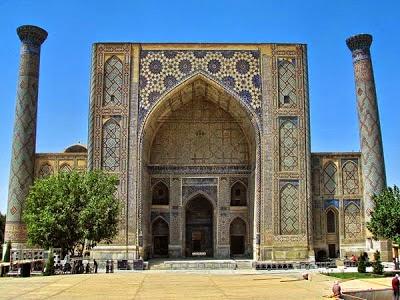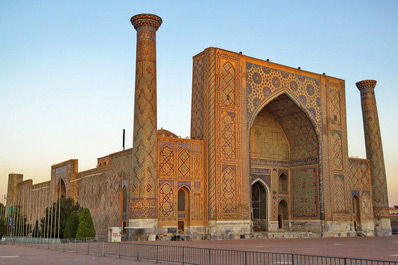Ulughbek Madrassah
The heir of the great state of the Temurids, a well-known mathematician and astronomer Ulughbek, assumed the authority in 1409. In year 1417, he gave an order to build the madrassah that would later be renamed in his honor. It was the first erection on the Registan Square. The word “madrassah” stems from Arabic and literally means “teaching and learning place”.
In 1420, the construction of madrassah ended. On the outside, the building, located on the western part of the square, was done in the form of a rectangle; inside there is a square yard with entrances to the student cells (approximately for 100 people) and learning rooms. The façade of the madrassah looks out on the square, completed with two tall minarets in the corners. Special attention should be given to an exquisite interior of the building. Glazed bricks create beautiful ornaments on the yellowish laying of the walls. The madrassah portal is adorned with patterns of ten-pointed stars symbolizing the sky, and astronomy.
At that time, it was the largest scientific-educational establishment in Samarkand. Here students were taught philosophy, astronomy, mathematics, theology. Along with the madrassah, caravan-sarai and hanaqa of Ulughbek were constructed as well. Two centuries later, they would build two other madrassah on the place of the vendors’ shelter and hanaqa, and they would complete the architectural ensemble that we can all see today.
Source: http://www.advantour.com/uzbekistan/samarkand/registan.htm



